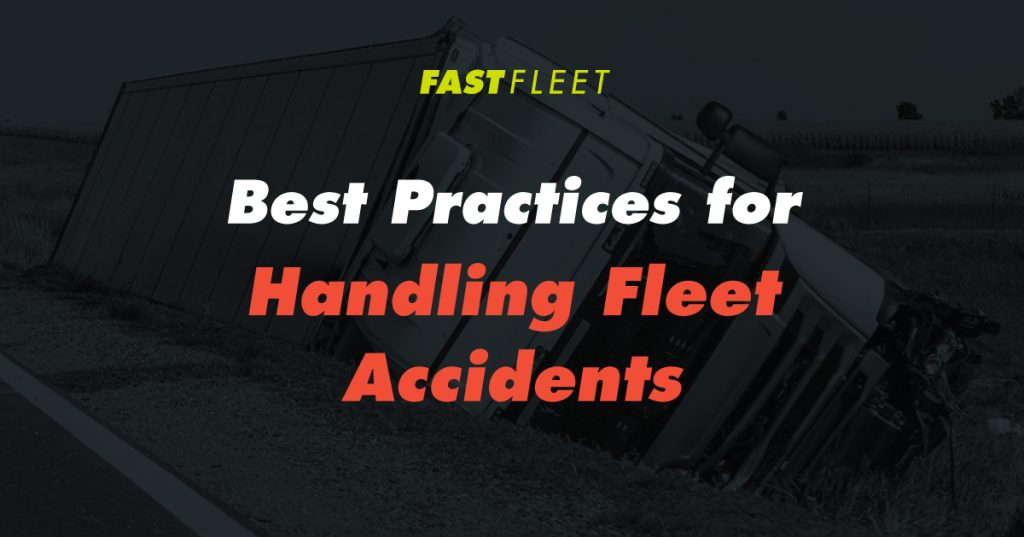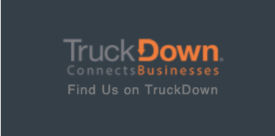Accidents involving commercial fleets can have significant repercussions, ranging from financial losses to damage to reputation and legal liabilities.
Therefore, it’s essential for fleet managers to be well-prepared to effectively manage and respond to accidents when they occur.
In this blog post, we will explore best practices for handling fleet accidents, providing guidance on how to minimize their impact and navigate the aftermath.
Preparing for Fleet Accidents
Accidents are unpredictable, but proper preparation can mitigate their impact and facilitate a more efficient response.
Here are some key steps to take in preparation for fleet accidents:
Develop a Comprehensive Safety Plan:
Start by establishing a robust safety plan that outlines protocols for accident prevention, response, and recovery.
Ensure that all drivers are familiar with the plan and receive regular training on safety procedures.
Implement Preventive Measures:
Take proactive measures to reduce the risk of accidents.
This may include investing in driver training programs, conducting regular vehicle maintenance checks, and utilizing advanced safety technologies such as collision avoidance systems.
Create an Emergency Response Team:
Designate a team of individuals within your organization who are responsible for managing accident responses.
This team should be trained to act swiftly and decisively in the event of an accident, coordinating with emergency services and other stakeholders as needed.
Review Insurance Coverage:
Review your fleet insurance coverage to ensure that it provides adequate protection in the event of an accident.
Understand the terms of your policy, including coverage limits, deductibles, and exclusions, and consider any additional coverage options that may be necessary.
By taking these proactive steps, fleet managers can better prepare their organizations to handle accidents and minimize their impact on operations.
Responding to Fleet Accidents
In the unfortunate event of an accident, it’s crucial to respond swiftly and effectively to ensure the safety of all involved and minimize the impact on operations.
Here are key steps to take when responding to fleet accidents:
Ensure Safety First:
The safety of drivers, passengers, and other individuals involved in the accident should be the top priority.
If the accident is minor and it is safe to do so, move vehicles to a safe location to prevent further collisions.
Otherwise, instruct everyone to remain in their vehicles until emergency services arrive.
Contact Emergency Services:
Immediately dial emergency services (such as 911) to report the accident and request assistance.
Provide accurate information about the location, number of vehicles involved, and any injuries sustained.
Follow any instructions given by emergency dispatchers.
Document the Accident:
Gather essential information about the accident, including the names and contact details of all parties involved, vehicle license plate numbers, insurance information, and witness statements if available.
Take photos of the accident scene, including vehicle damage and relevant road conditions.
Notify Fleet Management:
Inform fleet management or designated personnel about the accident as soon as possible.
Provide them with detailed information about the incident, including any injuries sustained, damage to vehicles, and potential impact on operations.
Cooperate with Authorities:
Cooperate fully with law enforcement officers and other authorities at the accident scene.
Provide accurate and truthful statements, but avoid admitting fault or making assumptions about the cause of the accident.
Follow Post-Accident Procedures:
Adhere to established post-accident procedures outlined in your organization’s safety plan.
This may include completing accident reports, notifying insurance providers, and arranging for vehicle repairs or replacements.
By following these steps, fleet managers and drivers can navigate the aftermath of accidents more effectively and ensure a smoother recovery process.
Insurance Claims Procedures
Navigating insurance claims procedures after a fleet accident is essential for minimizing financial losses and ensuring prompt resolution.
Here’s a guide to handling insurance claims effectively:
Report the Accident to Your Insurance Provider:
Notify your insurance company about the accident as soon as possible.
Provide detailed information about the incident, including the date, time, location, parties involved, and extent of damage or injuries.
Cooperate with Claims Adjusters:
Insurance companies typically assign claims adjusters to investigate accidents and assess the extent of damages.
Cooperate fully with claims adjusters, providing them with access to relevant information and documentation.
Document Damages and Expenses:
Keep thorough records of all damages sustained in the accident, including vehicle repairs, medical expenses, property damage, and any other associated costs.
Retain copies of invoices, receipts, and repair estimates to support your insurance claim.
Review Insurance Coverage:
Review your insurance policy to understand the coverage limits, deductibles, and exclusions that may apply to your claim.
Be aware of any deadlines or requirements for filing claims outlined in your policy.
Follow Claims Procedures:
Adhere to the claims procedures specified by your insurance provider.
This may include completing claim forms, providing supporting documentation, and cooperating with any investigations or evaluations conducted by the insurance company.
Seek Legal Assistance if Necessary:
In cases involving complex liability issues or disputes with insurance companies, consider seeking legal assistance from an attorney specializing in commercial vehicle accidents.
An experienced attorney can provide guidance and representation to protect your interests.
Monitor Claim Progress:
Stay informed about the progress of your insurance claim and follow up with your insurance provider as needed to ensure timely resolution.
Address any concerns or discrepancies promptly to avoid delays in the claims process.
By following these steps and working closely with your insurance provider, you can streamline the claims process and secure the compensation needed to recover from fleet accidents effectively.
Partnering with Fast Fleet for Fleet Emergency Solutions
Accidents are an unfortunate reality for commercial fleets, but having a reliable partner like Fast Fleet can make a significant difference in how effectively they are managed.
Here’s how partnering with Fast Fleet can enhance your fleet’s emergency response capabilities:
24/7 Roadside Assistance:
Fast Fleet offers round-the-clock roadside assistance services to help fleets address emergencies promptly, whether it’s a breakdown, flat tire, or other mechanical issues.
With a network of experienced technicians and service vehicles, Fast Fleet ensures that help is always just a phone call away.
Professional Towing Services:
In the event of a major accident or breakdown that requires towing, Fast Fleet provides professional towing services to safely transport vehicles to repair facilities or designated locations.
Their team is equipped with the necessary tools and expertise to handle towing operations efficiently and securely.
Mechanical Repairs:
Fast Fleet specializes in mechanical repairs for commercial vehicles, including diesel engines, suspension systems, transmissions, hydraulics, and electrical components.
Their certified technicians are trained to diagnose and resolve a wide range of mechanical issues, getting your fleet back on the road quickly and reliably.
Trailer Repairs:
In addition to truck repairs, Fast Fleet offers comprehensive trailer repair services to address damages sustained in accidents or mechanical failures.
From structural repairs to brake and lighting systems, their technicians are equipped to handle all aspects of trailer maintenance and repair.
Convenient Mobile Services:
Fast Fleet understands that downtime is costly for fleets, which is why they offer convenient mobile repair services that bring the expertise of their technicians directly to your location.
Whether it’s a roadside repair or on-site maintenance, Fast Fleet ensures minimal disruption to your operations.
Partnering with Fast Fleet not only provides fleets with access to reliable emergency solutions but also offers peace of mind knowing that their vehicles are in capable hands.
With Fast Fleet’s commitment to excellence and customer satisfaction, fleets can trust that their emergency needs will be addressed promptly and professionally.
Navigating fleet accidents requires a comprehensive approach that encompasses prevention, preparedness, and effective response strategies.
By implementing best practices for accident prevention, maintaining thorough documentation and communication protocols, and partnering with reliable emergency service providers like Fast Fleet, fleets can minimize the impact of accidents on their operations and ensure the safety of their drivers and assets.
Remember, accidents are unavoidable at times, but how you respond to them can make all the difference.
By staying proactive, prepared, and informed, fleets can navigate accidents with confidence and minimize their impact on their bottom line.
In the face of unexpected emergencies, having a trusted partner like Fast Fleet can provide fleets with the support and resources they need to overcome challenges and keep their operations running smoothly.
Fast Fleet’s commitment to excellence, reliability, and customer satisfaction makes them the ideal partner for fleets looking to enhance their emergency response capabilities and mitigate risks on the road.
















